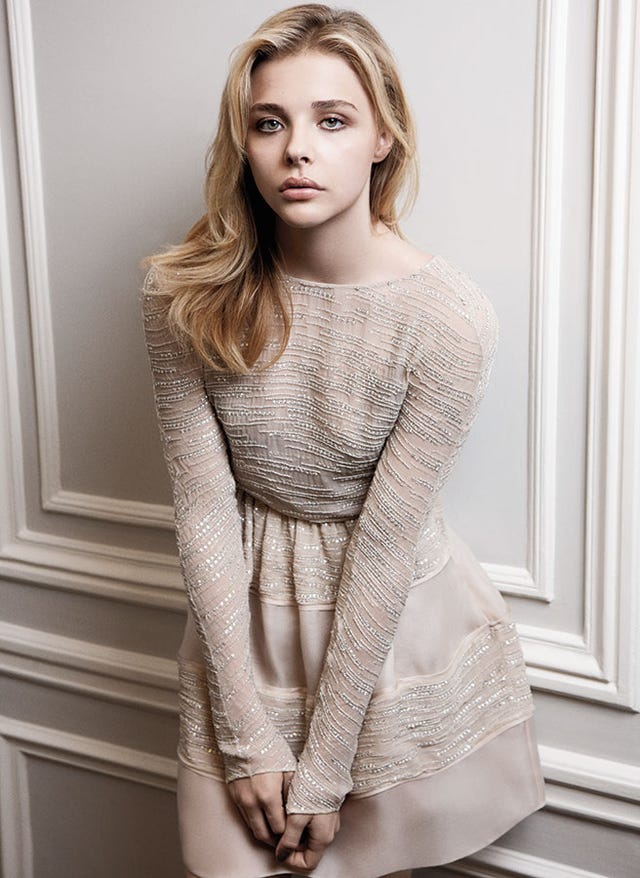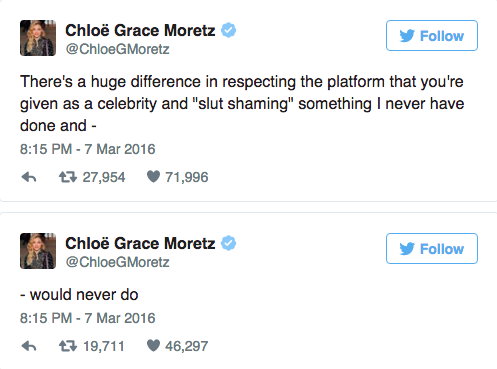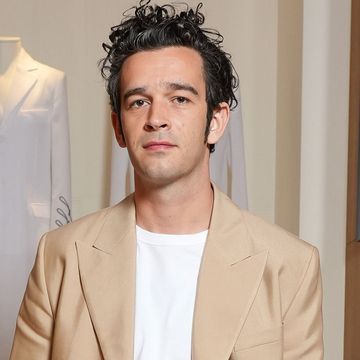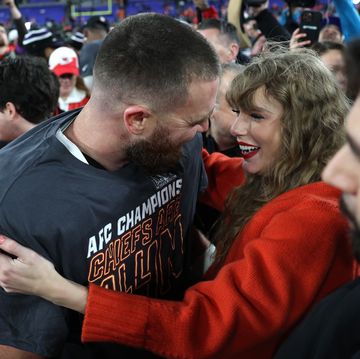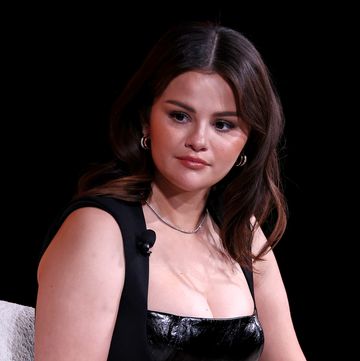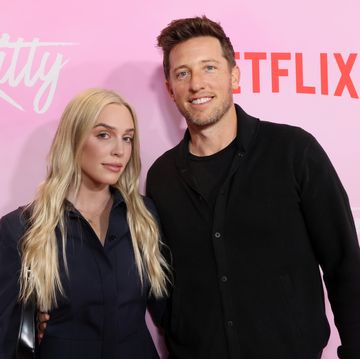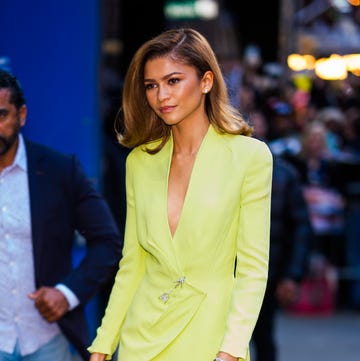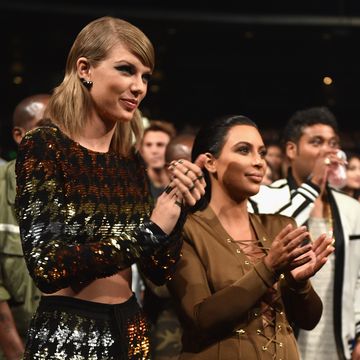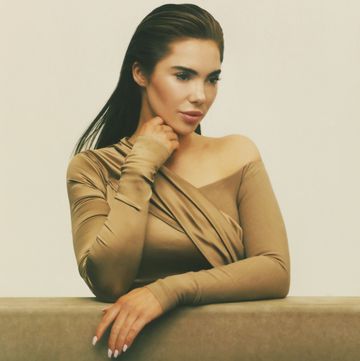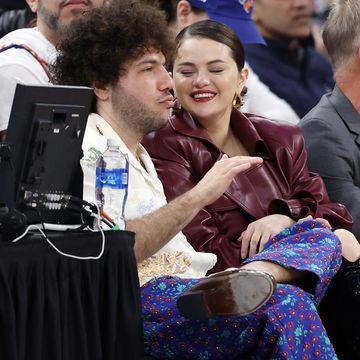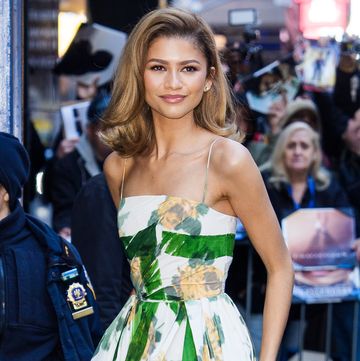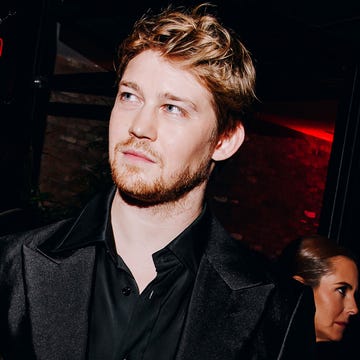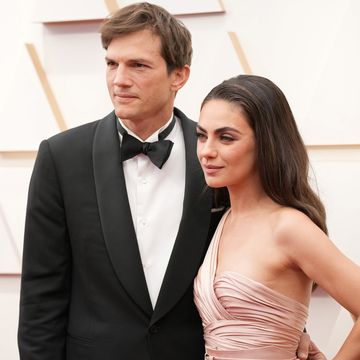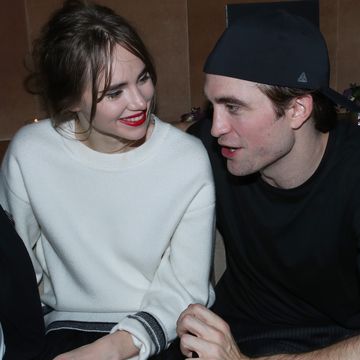In Hollywood, where some young starlets have been apprehensive to side with feminism, 19-year-old actress Chloë Grace Moretz has been a loud and proud "feminist since birth." She avoids "sexualized, boobs out, ass up" female movie roles. She campaigns for Hillary Clinton. She even endorses products with women's empowerment in mind, most recently backing period subscription box and app Monthly Gift (which, for the month of March is donating one box to sustainable hygiene and health education nonprofit Days for Girls for every box sold).
On the heels of the controversy surrounding her response to Kim Kardashian's nude selfie seen 'round the world ("I truly hope you realize how important setting goals are for young women, teaching them we have so much more to offer than our bodies," Moretz tweeted), we caught up with the actress to discuss sexuality and using her celebrity platform to voice her opinions.
Why did you partner with Monthly Gift and Days for Girls?
When you come from a privileged household, as I'm sure you and I have probably come from, we've been able to buy monthly feminine products since the first day that we got our periods. A lot of women out there have absolutely no means to be able to afford something that seems as simple and as much of a no-brainer as a feminine product. I think Monthly Gift has a really brilliant cause–giving underprivileged girls free feminine products every month. I think that's something that needs to be bigger, and needs to be talked about more. There's such a stigma around girls' periods, and women's sexuality—girls can't speak out for themselves or be who they want to be. I think that coming from the social platform that I have, I try to be a positive influence, and this was something that I felt needed to be seen and heard.
Speaking of your social platform, what compelled you to respond to Kim Kardashian's nude photo? What misunderstandings surrounding slut-shaming do you think exist?
All I'll say is that I think a lot of things can be misconstrued in a lot of ways. And I think if people open their minds more, and they try to look deeper into something than just something that is a very big, hot, fiery button to hide behind...I think if people looked into something bigger that I was trying to speak upon, they wouldn't be so easy to fire back silly, miscellaneous things.
What would you say to young women trying to navigate the sometimes treacherous waters of social media?
Depict yourself adequately as what you want to be seen as. Don't front, don't put something out there that you feel isn't realistic and doesn't portray who you are. Just be yourself, be you, and don't be afraid to speak your mind.
You've been outspoken, especially concerning your career and trying to turn down roles where female characters are sexualized. Why is that important to you?
It's not even roles where females are sexualized, it's where they're overtly sexualized in a masculine, stereotypical [context]. I think that's more of the thing for me. If they are sexualized, do it in a way in which the character feels they're being adequately depicted, in a sense. It all depends on the time period of the movie, or the context of the movie. It's more that I can't stand [female] characters that are not empowered in a certain way, or at least don't come to a conclusion at the end of the movie where they find empowerment in themselves. So, for me, it's just about making choices [so that] I can have a young woman look at the movie and not be negatively influenced.
And do you feel that way as well when you're just representing yourself, nude on a magazine cover, for instance, in the way that you're styled and posing?
Definitely. I mean, I think that's also a lot more based on artwork, so that's a little bit of a different conversation. Like, if I'm talking to a photographer, I'm talking to a stylist, I'm talking to a makeup artist, we're kind of creating and collaborating and making something that is artwork and is special and is different. Yeah, it's representing myself, but it's also not representing myself, because it's a character piece. So, I think that is a big difference. On social media, like on Instagram and stuff that I post, and the way that I view myself, and portray myself on there, that's definitely a much more personalized take. I'm not collaborating with people to make that, it's my own social media platform in which I'm–it's not a character, it's just me.
You have a lot of young fans, have there ever been any memorable comments that you've gotten from a follower?
I've gotten a lot of young gay kids come up to me and talk to me about how the little things I've said in the press has helped them come out to their parents, or just be open with who they are, and feeling invigorated by that. So that honestly means a lot to me to hear that the things that I say in the press, they do hear, and they see, and it helps them at least to start the conversation.
When did you start having conversations about feminism and sexuality?
That all really started when I was about 13—it started internally within my family, and then I saw that with the influence that I have and the career path that I have, maybe I can say what I'm feeling at least, and see if that applies to anyone else's life. And if it does, maybe it can help them through the situations that I've been going through and to shed light onto things that people might not be speaking about as much, because they might be too afraid to.
